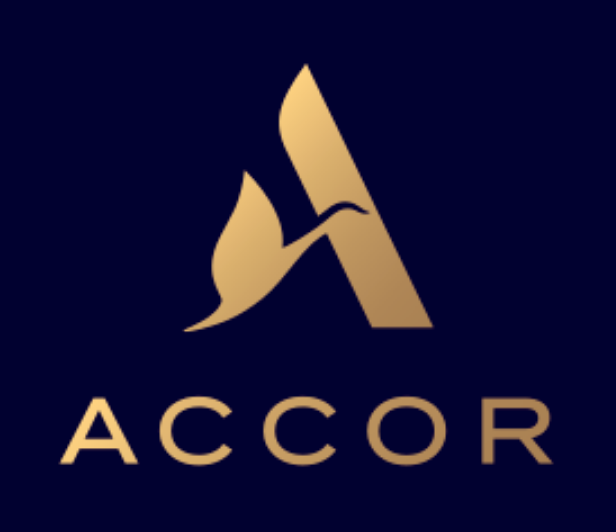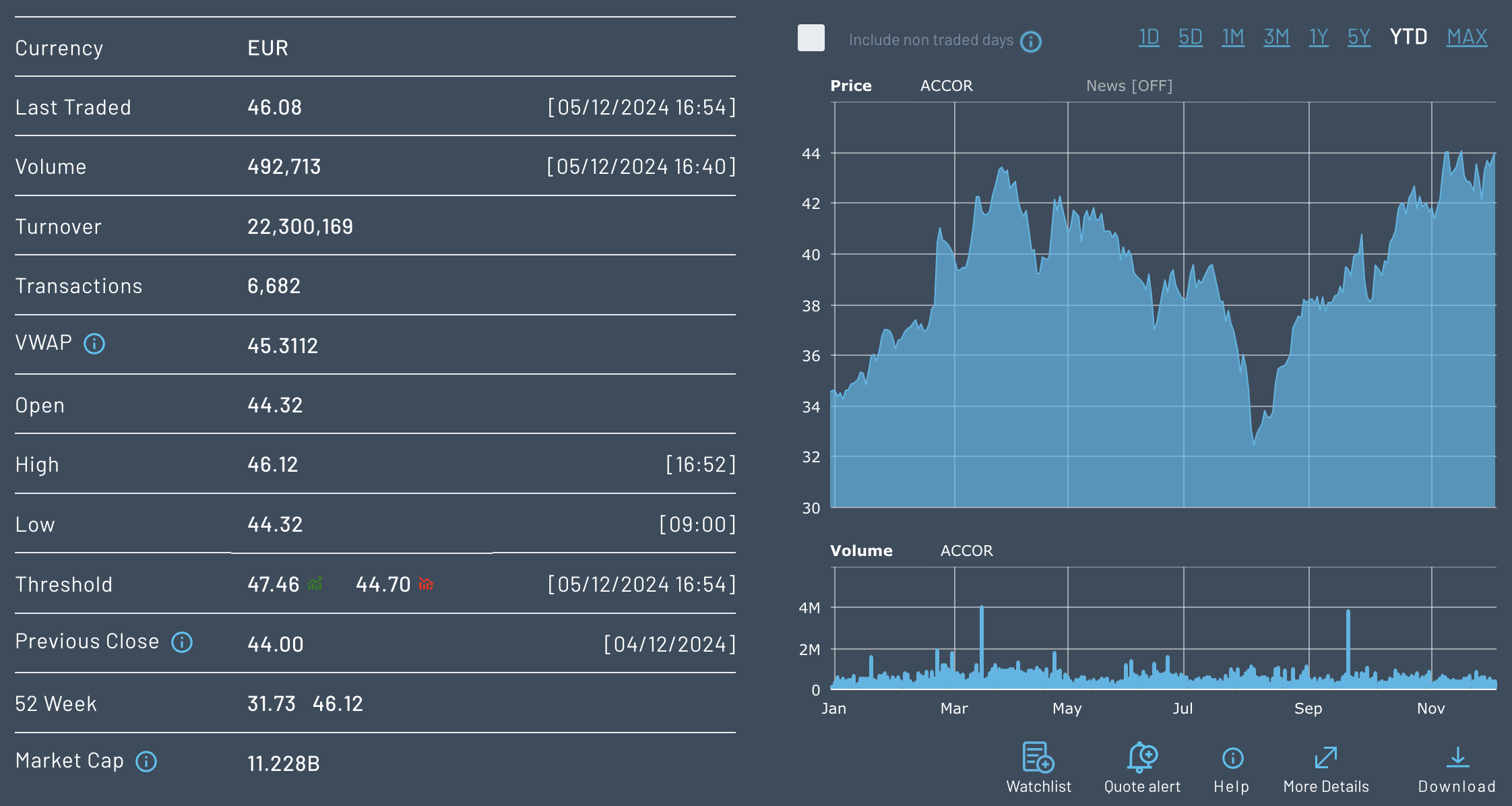My Internship Experience as a Brand Strategy Assistant at Accor

In this article, Marine SELLI (ESSEC Business School, Global Bachelor in Business Administration (GBBA), 2020-2024) shares her professional experience as a Brand Strategy Assistant at Accor, focusing on brand strategic analysis for a global portfolio of midscale brands.
About Accor
As a global hospitality industry leader, Accor has over 5,300 hotels throughout 110 countries. Accor has a wide variety of brands from luxury to economy, catering to different segments of customers – leisure travelers to business professionals. The company is known for its focus on innovation and sustainability and is always looking for ways to maintain a competitive advantage in a changing market. Today, the focus is on “augmented hospitality”. The brand strategy team in Accor’s global operations is responsible for creating and executing actions to promote value, brand equity, market presence and operational efficiency. In close partnership with regional relays and individual hotels, the team is able to adapt strategies in order to work with the specific dynamics of each market. Accor recently has been in the process of a strategic transformation, moving away from being a hotel owner and towards franchising and contracted management. Accor increases operational flexibility and minimizes financial risk by selling its brand name rather than owning the hotels directly and brand strategy is a key element of its global success. This strategy allows the company to concentrate on specific and focused competencies such as brand management, customer experience, but also innovation while transferring the financial and operational responsibilities of property ownership to third parties. By adopting a franchising and contracted management model, Accor also mitigates the risks associated with real estate ownership such as market fluctuations, high CAPEX ( capital expenditures ), and asset depreciation. This asset-light approach also provides greater agility, as it enables Accor to expand more rapidly and adapt to changing market conditions.
Logo of Accor.

Source: Accor.
As of December 5, 2024, Accor’s stock price has reached €46.08, reflecting a 45% year-to-date growth from its 52-week low of €32.47 on August 5th. This significant recovery underlines the investor’s confidence in the company’s strategic shift towards this asset-light model and its operational resilience. Moreover, Accor’s reentry into the CAC40 in March 2024 highlighted its resurgence as a key player in the French economy. The stock is now showing strong momentum, peaking at a 52-week high of €46.12, with daily trading volumes of 492,713 and a market capitalization of €11.23 billion.
Accor’s Historical Stock Data.

Source: Euronext.
My internship
During six months, I worked as a Brand Strategy Assistant for Accor, supporting global initiatives for three brands: Belonging to Mercure, Grand Mercure and Handwritten Collection. In my role, I had to simultaneously apply analytical know-how and communication skills to ensure strategic priorities were consistent across regions and individual properties. Because of my position, I was able to interact with a diverse range of stakeholders, including hotel managers responsible for implementing strategies on-site, regional leaders overseeing multiple properties, and corporate executives shaping the brand’s strategic vision. My role was to identify and help to develop the most impacting actions to drive results at the hotel level, and communicate these to the regional teams and the hotel managers.
My missions
When I was interning, a large part of what I did was take I did was take comprehensive data sets detailing every hotel Accor owns, including each property’s specific features and performance metrics such as occupancy rates, average daily rates (ADR), revenue per available room (RevPAR), and marketing campaign performance. Then I would synthesize it into a clear, actionable report. To accomplish that, I had to create Powerpoints that would portray brand strategies and performance insights to the regional teams and hotels all around the world as well as to the stakeholders at all levels with key performance metrics being highlighted. A second important part of my work was determining the ROI of different actions.This was computed by analyzing the incremental revenue generated from specific initiatives relative to their associated costs, such as marketing spend, operational investments, or promotional discounts. Through an analysis of global hotel-level data, I was able to identify which initiatives were having the greatest impact and provide recommendations on how to best utilize resources for maximum impact.
Required skills and knowledge
In this role I needed high-level synthesis skills to make sense of large amounts of data and report into documents. There was a need for proficiency in Excel to curate the data, and PowerPoint to convey effectively the information. I also needed analytical skills as I worked with financial metrics such as ROI and KPIs to analyze the success of initiatives. In addition, the role required deep collaboration and strong communication skills. I regularly engaged with a wide range of stakeholders, including regional teams, hotels, and agencies. I also developed expertise in working across different markets, understanding their unique characteristics, and aligning recommendations with each region’s specific goals and challenges.
What I learned
I learned a lot through my internship about how global strategies are applied to the local market in a fast developing and competitive industry. I acquired advanced skills in data analysis and synthesis and learned how to communicate complex information clearly to diverse audiences. In addition, I learned about the process of using financial metrics like ROI and KPIs to evaluate and prioritize strategic actions. On top of that, I believe this experience helped me develop my ability to think critically about how brand strategies can drive tangible results across different markets.
Finally, managing a hotel portfolio of this size (+1000 hotels) and complexity highlighted the difficulty of ensuring that every hotel aligns with Accor’s vision and delivers on its brand promises even though it is now its main business model. I had gained firsthand experience in learning how to navigate this challenge, contributing to initiatives designed to reinforce operational implementation and efficiency which is a key driver in hospitality business.
Financial concepts related my internship
I explain below three financial concepts related to your internship: Return on Investment (ROI), Key Performance Indicators ( KPIs) and Budget Management
Return on Investment (ROI)
ROI was one of the key financial concepts I applied. I analyzed the ROI of many different initiatives to identify which action led to the highest ROI and so resources were directed towards actions which led to the best results for driving hotel performance.
Key Performance Indicators (KPIs)
Another concept was KPIs. The hotel industry has its own specific metrics such as occupancy rates, average daily rate, and revenue per available room. These are essential for evaluating the success of each project and determining where improvements could be made.
Budget Management
Finally, my manager and I worked extensively on both budget management and budget allocation, which were critical aspects of my role. For budget allocation, we collaborated to distribute a strict and defined budget across different brands and within various global initiatives, such as brand campaigns, regional activations, and strategic projects aimed at strengthening Accor’s global market presence. I contributed by carefully evaluating the expected ROI of each initiative, analyzing key performance metrics like brand visibility, customer engagement, and revenue contributions. Together, we ensured that resources were allocated strategically to maximize the impact on a global scale. In terms of budget management, we worked closely to monitor spending across these global initiatives, ensuring compliance with the allocated budget. I actively tracked expenditures, flagged any deviations, and supported the development of adjustments to keep financial goals on track.
Why should I be interested in this post?
If you’re interested in exploring a mix of finance, strategy and marketing within a global organization, my experience at Accor demonstrates how financial metrics are used to drive impactful decisions in several business’ segments. It also highlights the importance of ensuring that global strategies translate into local success, offering valuable insights for those aspiring to work in corporate strategy, hospitality, or brand management.
Related posts on the SimTrade blog
▶ All posts about Professional experiences
▶ Alexandre VERLET Classic brain teasers from real-life interviews
Useful resources
About the author
The article was written in December 2024 by Marine SELLI (ESSEC Business School, (ESSEC Business School, Global Bachelor in Business Administration (GBBA), 2020-2024).
